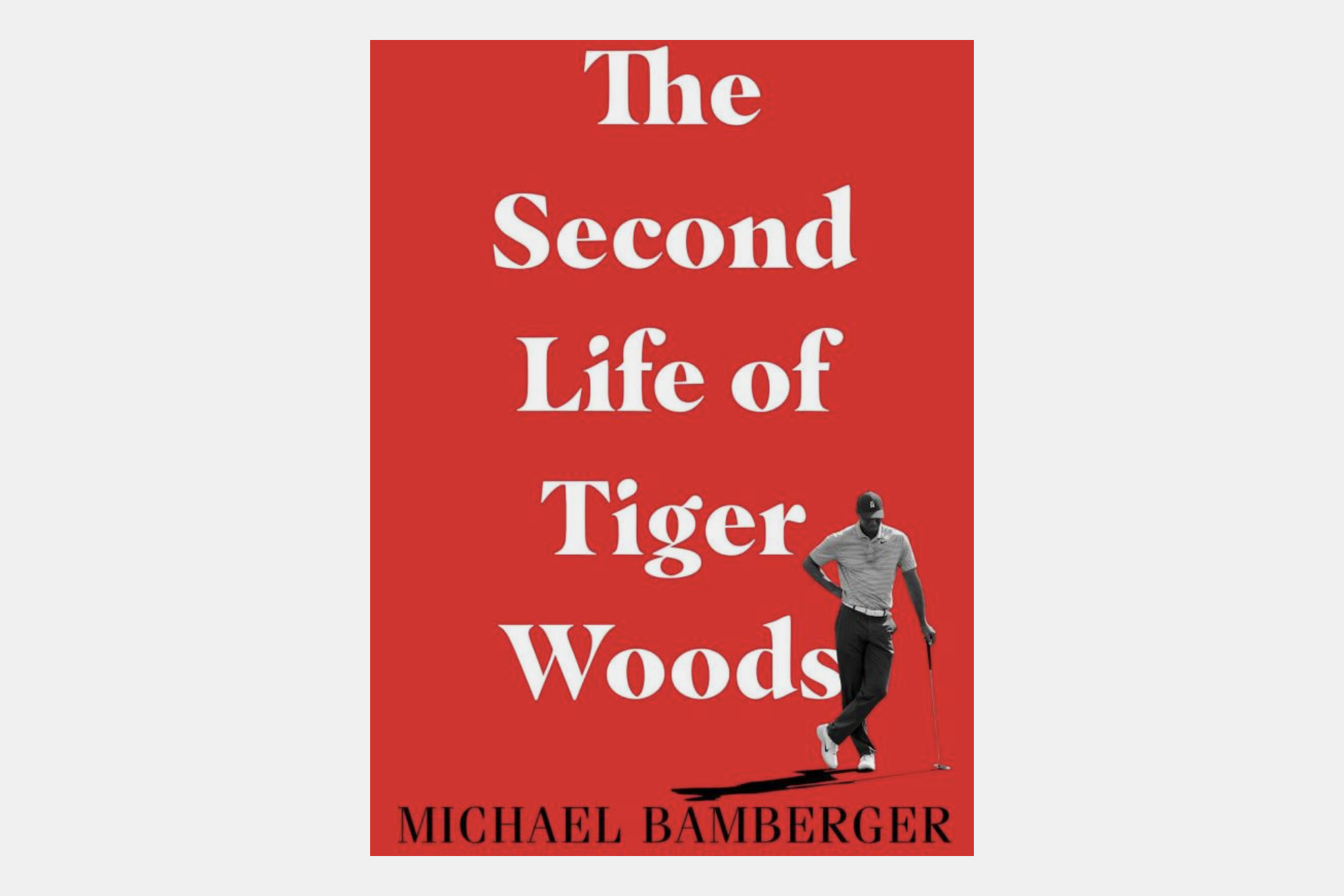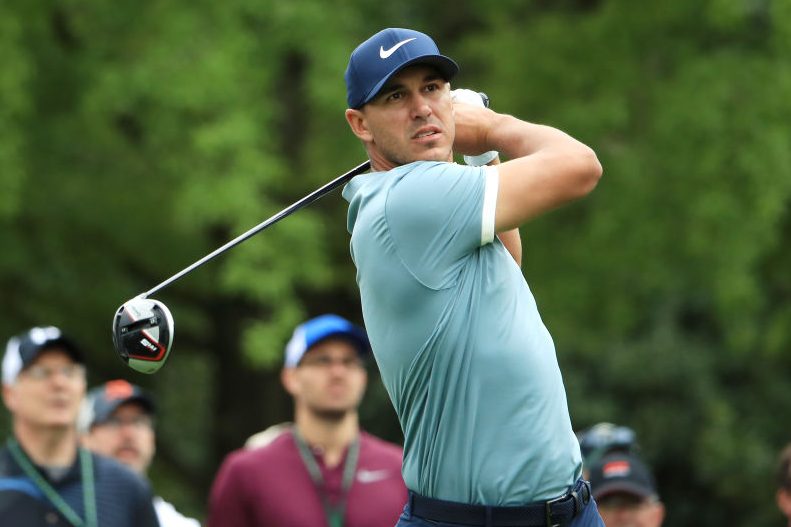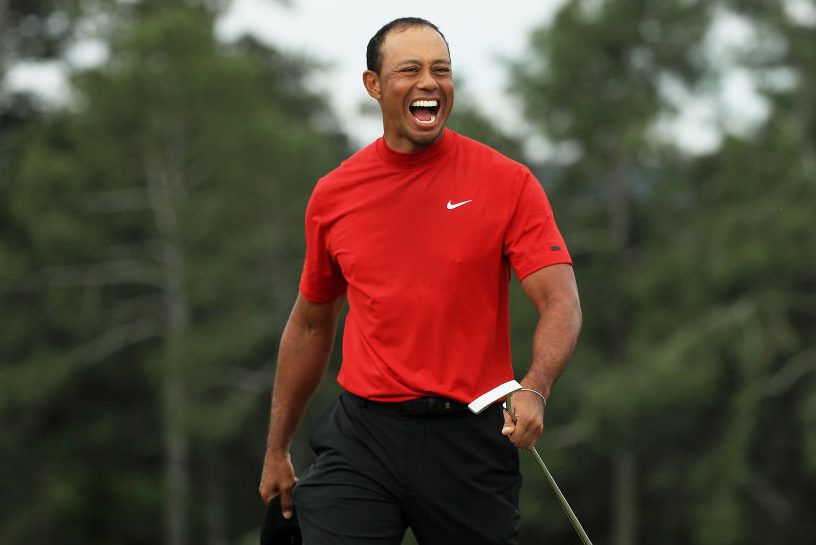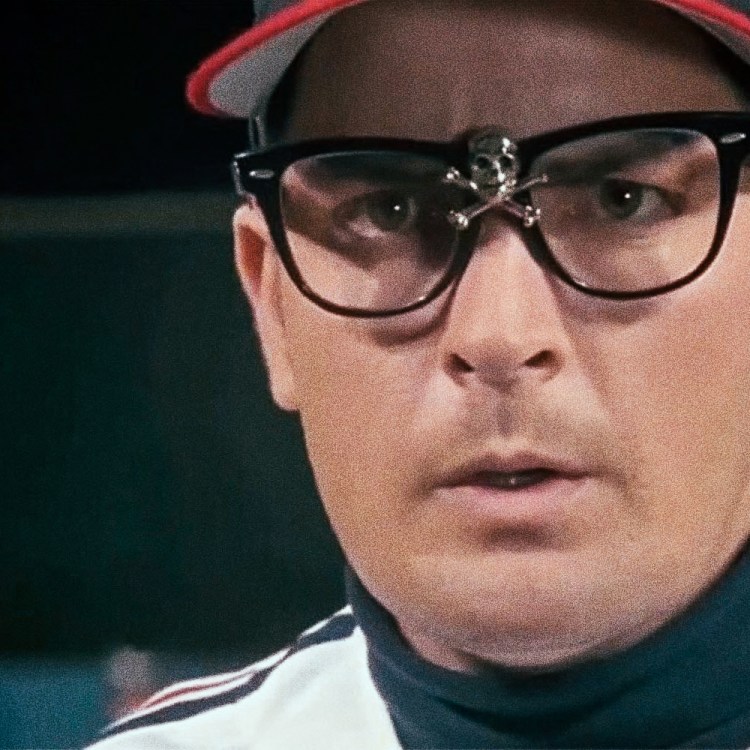Every year, there are a few moments that imprint themselves in your memory — the kind where you’ll be able to recall exactly where you were, who you were with and what you were doing even a year later. Tiger Woods winning the 2019 Masters at Augusta National was one of those moments.
Trailing Francesco Molinari going into Sunday’s final round, Woods was able to surpass the 54-hole leader with a birdie on the 15th hole before capping his first major win since the 2008 U.S. Open at Torrey Pines with a bogey on 18 for a 2-under 70 to seal victory.
Woods’s victory at Augusta National to snag the 15th major of his career was not just a comeback on the weekend, of course; for the 44-year-old golfer, it represented a comeback from everything: the highly publicized acts of infidelity, the injuries, the four risky back surgeries, the headline-making DUI arrest in 2017.
With a ferocious fist pump and a guttural scream, Woods was back where it all started, on the same green where he won first major in 1997 at the age of 21, when he blew away the field by 12 strokes.
Whether Woods manages to win another major once the PGA tour resumes is anyone’s guess; regardless, his moment on 18 in 2019 will stand alone, according to senior GOLF Magazine writer Michael Bamberger, the author of the new book The Second Life of Tiger Woods.
“You’ll never have the theater or that moment again except for maybe a 19th major to pass Jack Nicklaus,” Bamberger tells InsideHook. “But even 19 would feel different. With 15, it was like someone coming to terms with everything that’s gone wrong with their life. So it is actually hard to imagine something bigger than that 15th, really. And you saw it in the response on that Sunday afternoon when he won. Golf has never had that before. It’s never had a scene like that before. It’s never had a winner like that before. It’s never had a response like that before.”
The response was so different and impassioned because seeing Woods simultaneously conquer his competition and his demons was as cathartic for many fans as it was for the man himself.
“I don’t see how anybody in any walk of life can be anything other than I’m exhilarated when they see a man, a person, triumph over his problems,” Bamberger says. “Who among us doesn’t have problems that they want to triumph over? The fact is, with enough physical and mental effort, not all, but many, many issues in our lives can be defeated. I think the reason why this win was so transformative — not just for Tiger — is because everyone needs an uplift in their life and everyone needs an example of what can be achieved. I think Tiger provided that.”
And the overwhelming response Woods got after his win didn’t just come from fans, but from his competitors as well.
“Broadly speaking, he has a lot of fans among the players. They admire what he’s done in the game and what he’s brought to the game,” Bamberger says. “And they know that Tiger winning is good for their profession.”
Of course, the win was good for Woods as well, and Bamberger has noticed differences in him since it happened.
“The biggest difference that is readily identifiable is that Tiger appreciates what this life has given him,” he says. “He’s using the word gratitude and he’s showing that it’s not just a word in almost everything he’s doing, from his exchanges with fans to his relationships with the other players to how he responds to reporters. Almost everything about his public life now shows a man who has gone down some empathy journey and is expressing gratitude in ways I never had known him to do before. Whether you’re a super-celebrated and accomplished person like Tiger or not, you have to endure things in order to come out on the other side with a different perspective.”

Though Bamberger has noticed a difference in Woods, he cautions against saying that he has “changed.” Instead, Bamberger prefers “changing.”
“People say, ‘Oh, people don’t change.’ Well, I think maybe people really don’t change,” he says. “They just are changing. They evolve over time. That’s not just Tiger. I think that’s all of us. I would say the experience of winning the Masters made Tiger a more relaxed person, more comfortable with himself. And you saw it in how he handled his disappointing play at the three remaining Majors last year. But you also saw it in the serene confidence with which he led the American team at the President’s Cup in Australia in December.”
Now, thanks to the COVID-19, golf fans may have to wait until May to see Woods on the course again, when he will reportedly return to the links for a charity match with Phil Mickelson, Peyton Manning and Tom Brady.
Even if Woods never wins again, what he accomplished at Augusta last April is the only cherry-on-top his golf career could ever need.
“My opinion would be yes, that is enough,” Bamberger says. “He doesn’t have to do anything ever again to have led a rich, fulfilling athletic life. To win a 15th Major 11 years after winning a 14th is an absolutely spectacular accomplishment on which one could ride his own coattails for the rest of his life. Absolutely. I think 16 Majors is better than 15 and 17 is better than 16, and just makes your career that much more epic. Having said that, I truly do agree that if 15 is the end of the line, it has been an unbelievable run.”
This article was featured in the InsideHook newsletter. Sign up now.





















